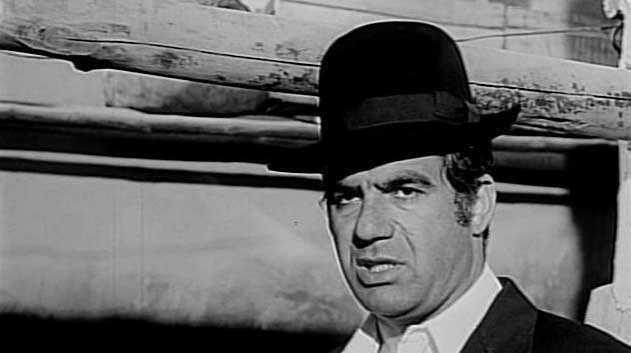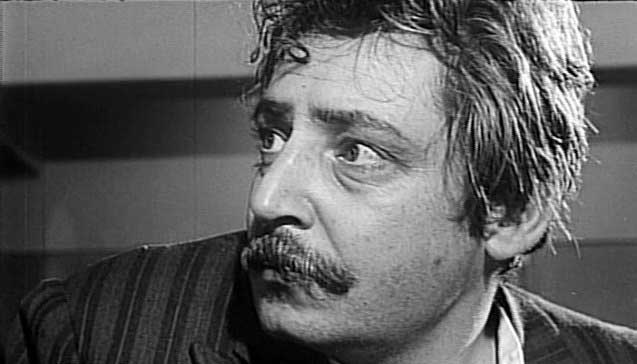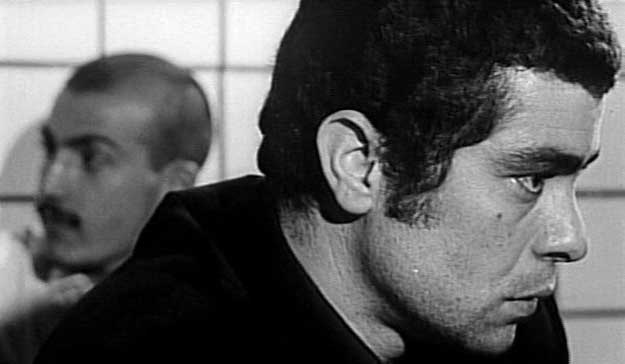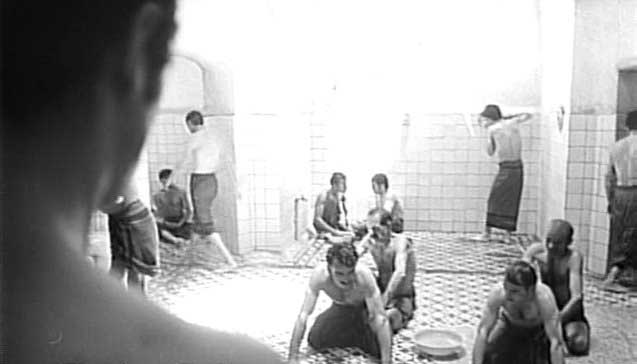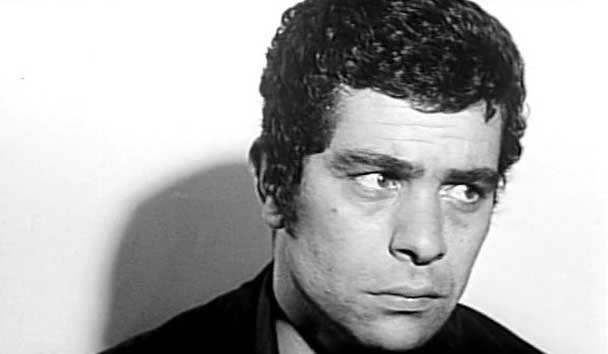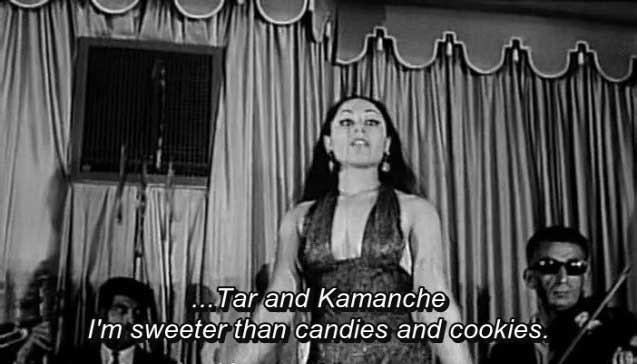Gheisar
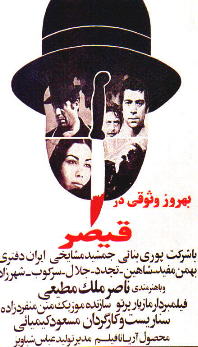
Director: Masoud Kimiai
Year: 1969
Rating: 7.5
Country: Iran
Aka - Qeysar
The chances of coming across an Iranian film from the 1960's is pretty slim
these days - so when I saw this floating up on the Internet I grabbed
it. It turns out that it was a landmark film in the career of director Masoud
Kimiai and ushered in a new style of gritty realistic filmmaking and the
anti-hero genre, the tough guy who gives up his life, breaks the law, breaks
with his family to do what he thinks is the right thing. Shot in grainy
black and white in the back streets and every day establishments of Tehran
it has a Scorsese feel to it - Mean Streets but it was shot a few years before
that. The actor who plays the protagonist - Behrouz Vossoughi - has a little
Delon and a little De Niro in him - soft and hard - mainly hard. It is a
terrific performance and it made him a star.
When a tight-knit's family daughter kills herself, it tears them apart especially
when they read a note she left behind. I am pregnant, I was raped by Mansour
when I visited his sister. The note is a stick of dynamite, a dagger that
needs to find a welcome heart. The girl's brother Farman, who is like a walking
cinder block with a high black hat on goes looking for justice - the uncle
tells him to leave the knife behind - you have committed yourself to God
and peace - he does much to his own tragedy as Mansour and his two brothers
stab him to death and drag his corpse to the roof. But everyone was saying
we have to clean this up before the younger brother, Gheisar, gets home from
a trip he is on. He is the crazy one. Not so crazy but you don't bring dishonor
on his sister and kill his brother without retribution to be paid.
The film is more than just a revenge film though - it delves into religion,
into family, into his obligation to his fiancée and to his mother.
She has lost two children - he is all she has left. He fights with his conscience,
his sense of guilt, of knowing he is committing a sin but honor for the family
has to be dealt with. Director Kimiai not only takes his camera out onto
the streets in guerilla style but has a few great scenes set up - one killing
takes place in a bath house which is this rundown place with white tiled
floors, men sitting about having their backs scrubbed by attendants and little
shower places where the business can be conducted - another in a slaughter
house where as the killing takes places cows are being carved up - a nightclub
scene that would clearly be forbidden today where men leer at the singer
in her short dress, wiggling hips and lyrics that spell out her intentions
- "my price is high, if you don't have the money buzz off" and past their
prime female prostitutes sit about looking for deep pockets and lust. Who
knows how many of these films from that period have survived through the
Revolution - but I hope some of them have.


